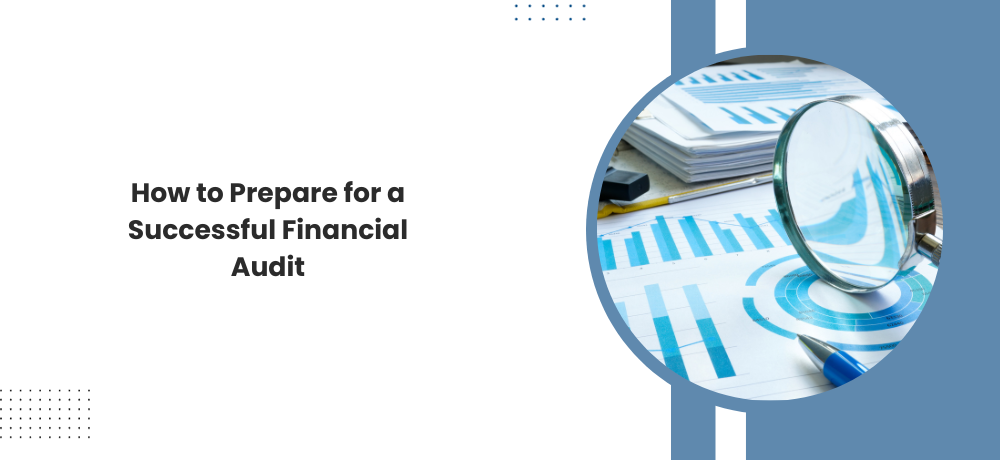How to Prepare for a Successful Financial Audit

As a business owner, ensuring the financial health of your company is crucial. One of the key aspects of this is preparing for a successful financial audit. In this blog, we will share valuable insights and guidance on how to get ready for an audit, ensuring that your financial records are in top shape. Whether you're a small business or a larger corporation, these steps are essential to help you sail through your audit smoothly.
Organize Financial Documentation:
Preparing for a financial audit begins with a meticulous organization of your financial documentation. This is the foundational step, as it ensures that all the necessary information is readily available when the auditors arrive. Start by creating a comprehensive list of the documents you'll need, including income statements, balance sheets, cash flow statements, and other key financial records. Keep these documents well-maintained, neatly filed, and easily accessible. A well-organized document management system not only saves time during the audit but also demonstrates your commitment to transparency and accuracy.
Understand Regulatory Requirements:
Understanding the regulatory requirements and standards applicable to your organization is paramount. Depending on your industry and geographic location, you may need to adhere to specific accounting principles, such as International Financial Reporting Standards (IFRS) or Generally Accepted Accounting Principles (GAAP). Stay informed about any recent changes in regulations that may impact your financial reporting. Compliance is a critical component of a successful audit, so ensure that your financial records align with the relevant standards.
Engage Professional Auditors:
Choosing the right audit firm or auditors for your organization is a decision that can significantly influence the audit's success. Seek auditors with experience in your industry or those who have a history of conducting successful audits for businesses similar to yours. Before the audit begins, establish clear lines of communication with your auditors. Discuss expectations, timelines, and the scope of the audit. By fostering a collaborative relationship, you can address any concerns or questions promptly, promoting a more efficient and successful audit process.
Internal Controls and Processes:
An essential aspect of audit preparedness is an internal review of your organization's financial controls and processes. This internal control evaluation ensures that your financial data is accurate and reliable. It involves assessing the segregation of duties, documenting accounting procedures, and maintaining a clear audit trail for all financial transactions. Address any weaknesses or deficiencies in your internal controls proactively. A strong internal control framework not only minimizes the risk of errors and fraud but also instills confidence in your financial reporting.
Thorough Reconciliation:
Reconciliation is a critical aspect of audit preparation. It involves verifying that your financial records match external data sources, such as bank statements, accounts receivable, accounts payable, and inventory. Carefully scrutinize your balance sheets to identify and rectify any discrepancies. Investigate any inconsistencies and ensure that your records are in harmony with your bank statements and other supporting documentation. An in-depth reconciliation process assures the auditors that your financial records are accurate and dependable.
Documentation and Supporting Evidence:
Complete, well-documented financial records are the cornerstone of a successful financial audit. Every accounting entry, transaction, and adjustment should be clearly and comprehensively documented. Maintain a complete audit trail, complete with dates, descriptions, and relevant supporting evidence such as invoices, contracts, and agreements. This documentation not only facilitates the audit process but also provides transparency and validation for the auditors. It's the evidence that supports the accuracy and integrity of your financial records.
Preparing for a financial audit doesn't have to be a daunting task. By following these steps and staying organized, you can ensure a successful audit process. If you need further assistance or have specific questions, don't hesitate to get in touch with us today. Our team at Roche Financial Group is here to help you navigate the audit with confidence.
To contact us, click here or call us at (905) 434-8648.